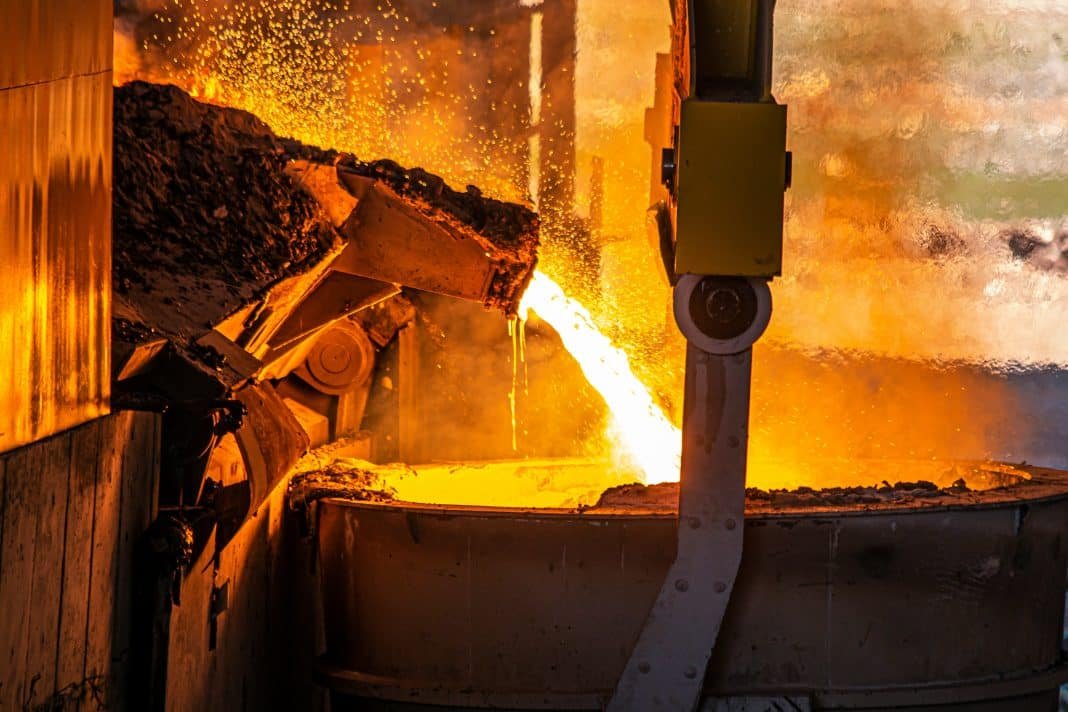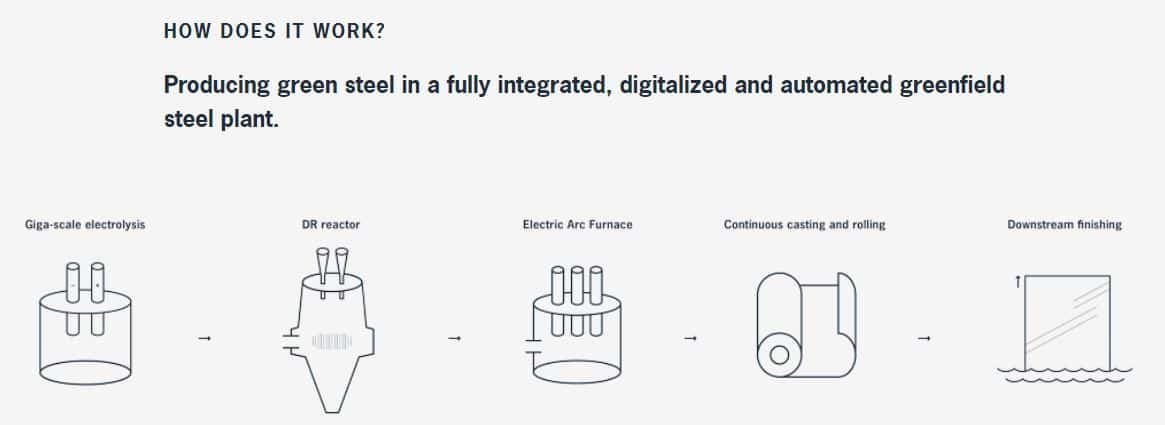H2 Green Steel raised €190 (US$191) million in funding from investors in its latest series B round to scale up its hydrogen, iron and steel facilities.
The Swedish low-carbon steel provider was founded in 2020 and seeks to ramp up the decarbonization of the steel industry, which is one of the world’s largest CO2 emitters.
H2 Green Steel plans to produce green steel by replacing coal with green hydrogen. This will reduce CO2 emissions by over 90% compared to traditional steelmaking.
Its recent equity round was co-led by new investors AMF, GIC, and Schaeffler, alongside other investors including:
- Altor Fund V
- Swedbank Robur Alternative Equity
- Vargas,
- Kingspan,
- FAM,
- Marcegaglia,
- IMAS Foundation,
- Cristina Stenbeck and
- Spotify CEO and co-founder Daniel Ek.
H2 Green Steel’s CEO Henrik Henriksson called the multi-million investment a real statement of confidence in the startup. He said that:
“Despite the uncertainty in global markets, a venture like ours, with both a strong business case and a strong sustainable purpose, is clearly attractive to investors… This financing round has allowed us to combine leading industrial companies and global financial institutions creating the investor-base that will set us up for success…”
H2 Green Steel Decarbonization Goals
The startup will use the funding proceeds to help industries that emit significant carbon decarbonize. It will do so starting with the delivery of its planned green hydrogen powered steel plant in Boden, Sweden.
The 5 million tonne steel plant got the permissibility last July. It is now into its construction phase on around 270 hectares of land.
No steel mills have been built in Europe since the ’70s so H2’s green hydrogen plant is historic.
The record pace of receiving the permissibility permit for its operations in Boden was possible via the firm’s series A equity round. This round also enabled H2 Green Steel secure a 14 TWh agreement for renewable electricity and initiating groundworks.
The Stockholm-based green steel provider also added that it has pre-sold about 60% of its initial volumes of steel (1.5 million tonnes).
This shows the significant pent up demand for decarbonized steel.
A major part of that pre-selling involves a deal with auto giant BMW.
What is Green Steel?
H2 Green Steel will provide the carmaker with steel to support its goal to meet 40% of demand at its European plants with low carbon steel by 2030.
The green steel provider pledged to reduce its Scope 1, 2 and upstream Scope 3 emissions. It has a gross embodied carbon emission intensity obligation per tonne of steel as part of its customer contracts.
H2 Green Steel’s effort to reduce emissions will affect BMW Group’s supply chain and upstream Scope 3 emissions.
Part of the deal with BMW is ensuring circularity with recycling scrap. In fact, both companies agreed to have 40% of the pre-consumer steel scrap returned to H2 Green Steel’s electric arc furnaces be for recycling.
This is vital for the company’s definition of green steel where actual CO2 reductions and improving circularity are both crucial.
And so, green steel must be from a combination of a significant amount of green virgin iron and scrap in a production process that uses electricity from renewable energy sources.
Here’s how H2 Green Steel’s production process works:
The total CO2 emissions of this process +90% lower than that of traditional steelmaking in a blast furnace process.
Hitachi Energy also joins forces with H2 Green Steel on projects that support the start-up in producing green steel. Apart from being an investor in H2 green steel production, Hitachi will also be its customer.
Henrik Henriksson believes that its green steel production raises the bar for the industry’s decarbonization journey.
GIC’s CEO Choo Yong Cheen considers H2 Green Steel as a “global pioneer in carbon-free steel”.
Another option for low carbon steel production is green pig iron. It refers to an iron ore that has been processed using low emission technologies and inputs.
It also produces steel without using coal but through the renewable input of biomass called biochar. Green pig iron production can reduce emissions by up to 100%.


